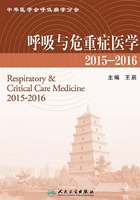
上QQ阅读APP看书,第一时间看更新
6 烟草暴露对非小细胞肺癌EGFRTKI疗效影响的研究进展
陈虹 李丹丹
肺癌是世界上发病率和死亡最最高的恶性肿瘤之一,其中非小细胞肺癌(non-small cell lung cancer,NSCLC)约占肺癌所有病理类型的85%。表皮生长因子受体酪氨酸激酶抑制剂(epidermal growth factor receptor tyrosine kinase inhibitor,EGFR-TKI)能显著改善EGFR突变NSCLC患者无进展生存期(progression-free survival,PFS),但EGFR-TKI耐药问题成为限制其临床应用的瓶颈。80%的男性肺癌与50%的女性肺癌与吸烟有关 [1],大量研究表明吸烟NSCLC肺癌患者预后较差 [2,3],采用EGFR-TKI治疗的NSCLC患者,有吸烟史患者对EGFR-TKI的应答率较低,PFS及总生存期(overall survival,OS)均较短 [4-7]。本文就吸烟对非小细胞肺癌EGFR-TKI疗效的影响进行综述。
一、烟草暴露与非小细胞肺癌EGFR突变
EGFR基因突变状态是EGFR-TKI疗效的重要预测因子。目前研究表明EGFR突变在亚洲、非吸烟、女性、腺癌人群中突变率较高。鉴于吸烟与肺癌的密切关系,亦有学者对吸烟患者EGFR突变状态进行了研究。Dogan等人对3026例白种人肺腺癌组织标本进行EGFR突变情况检测,发现从不吸烟者EGFR突变率为43%,吸烟者(包括目前吸烟者及既往吸烟者)EGFR突变率为11%,吸烟指数低于10包年的患者EGFR突变率与非吸烟患者相比无明显差别;吸烟指数超过10包年的患者EGFR突变率只有从不吸烟者的1/5,可见吸烟指数与EGFR突变率呈负相关 [8]。除了吸烟指数,戒烟年限也与EGFR突变关系密切,戒烟年数小于20年肺腺癌患者:EGFR阳性突变患者既往平均吸烟指数低于EGFR阴性突变患者;戒烟年数大于20年肺腺癌患者:EGFR阳性突变患者既往平均吸烟指数与EGFR未突变患者无明显差异 [9]。除此之外,环境烟草烟雾暴露亦会降低EGFR突变率。然而有学者在对美国人及日本人吸烟指数分层与EGFR突变率关系进行比较时发现:在美国,吸烟指数≥50包年的患者EGFR突变率小于10%,而在日本却大于20% [10]。上述研究说明EGFR突变率是各种因素如吸烟指数,戒烟年限、地域、种族、生活习惯等综合作用的结果,吸烟史不能作为是否行EGFR基因突变检测的依据,但可作为EGFR突变状态的重要预测因子。
吸烟与肺鳞癌关系密切,肺鳞癌与肺腺癌分子遗传学差异很大,肺鳞癌是否常规行EGFR基因检测、EGFR-TKI对EGFR突变的肺鳞癌缓解率如何也是临床争论的焦点。2010年日本学者发现,在手术切除的肺鳞癌标本,EGFR突变率为7.4% [11];来自韩国的研究提示肺鳞癌患者EGFRTKI突变率为15% [12];我国学者对163例纯鳞状细胞肺癌患者进行EGFR突变状态进行检测,发现28例发生EGFR突变,突变率为17.2%,稍高于之前的研究结果 [13];中国学者吴一龙等的荟萃分析显示:肺鳞癌EGFR突变率为10% [14]。日本研究结果显示:有EGFR突变的肺鳞癌采用EGFR-TKI治疗缓解率为27%,疾病控制率(disease control rate,DCR)为67%~70%,中位PFS为3个月,而EGFR突变的肺腺癌患者EGFR-TKI的缓解率为66%,DCR为92%~93%,中位PFS为9.4个月 [15]。尽管EGFR突变的肺鳞癌EGFR-TKI有效率、DCR、中位PFS均短于EGFR突变的肺腺癌,但仍优于化疗,因此不能完全排除肺鳞癌的EGFR基因突变检测及EGFR-TKI的使用。
二、烟草暴露对非小细胞肺癌EGFR-TKI治疗疗效的影响
Mitchell等的meta分析指出:吸烟对于EGFR阳性突变肺腺癌患者EGFR-TKI一线治疗的影响依然未有定论 [16]。多项回顾性研究评估了吸烟对EGFR阳性突变肺腺癌患者采用EGFR-TKI治疗疗效的影响,结果虽不尽相同,但均指出:PFS及OS在吸烟患者与不吸烟患者之间无明显差异 [17-19],Jain等的研究也指出:吸烟史及吸烟量对EGFR-TKI作为一线治疗的EGFR阳性突变晚期肺腺癌患者PFS及OS无明显影响 [20],与上述研究结果一致。
然而,Kim等研究发现EGFR阳性突变肺腺癌患者采用EGFR-TKI治疗时,吸烟指数对于其生存有明显负性影响:吸烟指数≥30包年的EGFR突变肺腺癌患者,其PFS及OS均短于不吸烟者及吸烟指数<30包年患者,其DCR及客观缓解率也较低;在校正了性别、年龄、工作、分期及EGFR-TKI二线或三线治疗等因素后发现,吸烟指数≥30包年是EGFR突变肺腺癌患者EGFR-TKI治疗效果的阴性预测因子 [5]。Togashi等也发现:EGFR阳性突变肺腺癌患者采用EGFR-TKI治疗时,目前正在吸烟者PFS、OS均明显短于从不吸烟者及既往吸烟者,与Kim等研究结果一致,然而EGFR-TKI作为一线治疗时,吉非替尼应答率与吸烟史有关,但在既往吸烟者、从不吸烟者、目前正在吸烟者之间差异无统计学意义 [21]。我国学者发现在EGFR突变肺腺癌患者,吸烟史对EGFR-TKI治疗疗效产生负性影响 [22],同时亦有meta分析指出:EGFR突变的晚期NSCLC患者采用EGFR-TKI治疗时,吸烟者PFS短于非吸烟者 [23]。
环境烟雾暴露对EGFR-TKI疗效的影响也有研究。有三期临床研究显示:柴火烟雾暴露患者吉非替尼应答率较高,PFS较长 [24];中国学者发现EGFR-TKI治疗的NSCLC患者,烹饪油烟暴露患者PFS更长 [25],而烧柴烹饪每天3小时,苯并芘的暴露量等同于吸烟3包/天 [26,27]。香烟烟雾暴露与柴火烟雾暴露、烹饪油烟烟雾暴露对EGFR-TKI治疗疗效的影响相互矛盾,可能系女性柴火烟雾暴露及烹饪油烟烟雾暴露等家庭环境烟雾暴露机会较多,而女性EGFR突变率较高,对EGFR-TKI应答率也较高,从而对研究结果产生影响所致。
三、烟草暴露诱导非小细胞肺癌EGFRTKI耐药分子机制
吸烟诱导非小细胞肺癌EGFR-TKI耐药的分子机制目前仍未完全阐明,目前的研究主要从以下几个方面进行解释:Filosto等人研究发现不论是在EGFR野生型(WT),还是EGFR L858R突变型细胞,吉非替尼、厄洛替尼、AG1478等TKI均不能抑制烟雾诱导的EGFR活化,因为烟雾不仅通过H 2O 2诱导的氧化应激引起EGFR异常磷酸化,EGFR泛素化降解受阻,而且可通过诱导异常的EGFR构象变化及下游Erk、Akt信号通路的活化导致EGFR-TKI耐药 [28,29];此外他们还发现烟雾氧化应激可致Src激活,活化的Src与EGFR紧密结合,导致非小细胞肺癌EGFR-TKI耐药,而Src抑制剂可恢复烟雾暴露所致的TKI耐药 [30]。我们前期研究发现烟草提取物可通过激活Src调控EMT诱导肺腺癌PC-9细胞吉非替尼耐药 [31],我国学者也发现烟草提取物可通过激活EGFR信号通路及诱导EMT导致非小细胞肺癌EGFR-TKI耐药 [22],与我们的研究不谋而合。
尼古丁作为烟草中重要成分之一,其诱导非小细胞肺癌EGFR-TKI耐药亦有研究。Zhang等人研究发现:尼古丁可通过PI3K/Akt、GSK-3β信号通路调控相关转录因子EMT的表达,调控肺癌PC9细胞发生EMT,引起PC9细胞对吉非替尼产生获得性耐药,而Akt、MAPK通路抑制剂可抑制PC9细胞发生EMT,部分逆转尼古丁诱导的PC9细胞吉非替尼获得性耐药 [32];在体外,PC9细胞尼古丁急性或慢性暴露,均可通过α1烟碱型乙酰胆碱受体(α1 nicotinic acetylcholinereceptors,α1 nAChRs),活化Erk1/2、Akt信号通路导致非小细胞肺癌EGFR-TKI耐药,而siRNA敲除α1 nAChRs则可降低TKI耐药程度 [33];尼古丁通过α1 nAChRs与EGFR交互对话,引起NSCLC厄洛替尼耐药 [34],Togashi等也发现尼古丁慢性暴露通过EGFR信号通路导致EGFR突变肺癌EGFR-TKI耐药,与Wang的研究结果一致 [21]。
四、总结
分子靶向时代,鉴于吸烟相关性肺癌与非吸烟相关性肺癌驱动基因的不同,其治疗及预后也存在较大差异。EGFR-TKI是NSCLC治疗进程中的重大突破,有吸烟史的EGFR突变NSCLC作为一个特殊的临床亚群,其EGFRTKI的疗效仍值得关注。吸烟史与肺癌EGFR突变率呈负相关,但受吸烟指数及戒烟年限的影响较大;有吸烟史的EGFR突变NSCLC患者疾病控制率、客观缓解率、无进展生存期、总生存期均短于不吸烟者,但由于目前关于吸烟对EGFR-TKI疗效影响的研究多为亚组分析,各项研究所得结果不尽相同甚至相互矛盾,仍需大样本量的头对头研究以提供更多证据。烟草暴露诱导肺癌EGFR-TKI耐药的机制主要有EGFR信号通路激活、Src激活、上皮间质转化、α1烟碱型乙酰胆碱受体与EGFR交互对话等。深入了解烟草暴露与EGFR-TKI耐药之间的关系,不仅可帮助我们进一步寻找烟草暴露诱导EGFR-TKI耐药过程中的关键节点,从而对发现的靶点进行早期干预,进一步改善NSCLC患者预后,而且为根据吸烟状态细分EGFR突变NSCLC为不同亚群进而实施个体化治疗提供理论依据。
参考文献
1. Torre LA,Bray F,Siegel RL,et al. Global cancer statistics,2012.CA:a cancer journal for clinicians,2015,65(2):87-108.
2. Kawaguchi T,Takada M,Kubo A,et al. Performance status and smoking status are independent favorable prognostic factors for survival in non-small cell lung cancer:a comprehensive analysis of 26,957 patients with NSCLC. J ThoracOncol,2010,5(5):620-630.
3. Parsons A,Daley A,Begh R,et al. Influence of smoking cessation after diagnosis of early stage lung cancer on prognosis:systematic review of observational studies with meta-analysis. Bmj,2010,340:b5569.
4. Hotta K,Kiura K,Takigawa N,et al. Association of the benefit from gefitinibmonotherapy with smoking status in Japanese patients with non-small-cell lung cancer. Lung cancer,2008,62(2):236-241.
5. Kim MH,Kim HR,Cho BC,et al. Impact of cigarette smoking on response to epidermal growth factor receptor(EGFR)-tyrosine kinase inhibitors in lung adenocarcinoma with activating EGFR mutations.Lung cancer,2014,84(2):196-202.
6. Jida M,Toyooka S,Mitsudomi T,et al. Usefulness of cumulative smoking dose for identifying the EGFR mutation and patients with non-small-cell lung cancer for gefitinib treatment. Cancer science,2009,100(10):1931-1934.
7. Sohn HS,Kwon JW,Shin S,et al. Effect of smoking status on progression-free and overall survival in non-small cell lung cancer patients receiving erlotinib or gefitinib:a meta-analysis. Journal of clinical pharmacy and therapeutics,2015,40(6):661-671.
8. Dogan S,Shen R,Ang DC,et al. Molecular epidemiology of EGFR and KRAS mutations in 3,026 lung adenocarcinomas:higher susceptibility of women to smoking-related KRAS-mutant cancers.Clinical cancer research:an official journal of the American Association for Cancer Research,2012,18(22):6169-6177.
9. Sugio K,Uramoto H,Ono K,et al. Mutations within the tyrosine kinase domain of EGFR gene specifically occur in lung adenocarcinoma patients with a low exposure of tobacco smoking. British journal of cancer,2006,94(6):896-903.
10. Mitsudomi T,Yatabe Y. Mutations of the epidermal growth factor receptor gene and related genes as determinants of epidermal growth factor receptor tyrosine kinase inhibitors sensitivity in lung cancer. Cancer science,2007,98(12):1817-1824.
11. Thunnissen E,Boers E,Heideman DA,et al. Correlation of immunohistochemical staining p63 and TTF-1 with EGFR and K-ras mutational spectrum and diagnostic reproducibility in non small cell lung carcinoma. VirchowsArchiv:an international journal of pathology,2012,461(6):629-638.
12. Rekhtman N,Paik PK,Arcila ME,et al. Clarifying the spectrum of driver oncogene mutations in biomarker-verified squamous carcinoma of lung:lack of EGFR/KRAS and presence of PIK3CA/AKT1 mutations. Clinical cancer research:an official journal of the American Association for Cancer Research,2012,18(4):1167-1176.
13. Zhang Q,Zhu L,Zhang J. Epidermal growth factor receptor gene mutation status in pure squamous-cell lung cancer in Chinese patients. BMC cancer,2015,15:88.
14. Wu YL,Zhong WZ,Li LY,et al. Epidermal growth factor receptor mutations and their correlation with gefitinib therapy in patients with non-small cell lung cancer:a meta-analysis based on updated individual patient data from six medical centers in mainland China.Journal of thoracic oncology:official publication of the International Association for the Study of Lung Cancer,2007,2(5):430-439.
15. Shukuya T,Takahashi T,Kaira R,et al. Efficacy of gefitinib for non-adenocarcinoma non-small-cell lung cancer patients harboring epidermal growth factor receptor mutations:a pooled analysis of published reports. Cancer science,2011,102(5):1032-1037.
16. Mitchell P,Mok T,Barraclough H,et al. Smoking history as a predictive factor of treatment response in advanced non-small-cell lung cancer:a systematic review. Clinical lung cancer,2012,13(4):239-251.
17. Morita S,Okamoto I,Kobayashi K,et al. Combined survival analysis of prospective clinical trials of gefitinib for non-small cell lung cancer with EGFR mutations. Clinical cancer research:an official journal of the American Association for Cancer Research,2009,15(13):4493-4498.
18. Paik PK,Johnson ML,D'Angelo SP,et al. Driver mutations determine survival in smokers and never-smokers with stage ⅢB/Ⅳlung adenocarcinomas. Cancer,2012,118(23):5840-5847.
19. R R,T M,BS CQ,et al. Screening for Epidermal Growth Factor Receptor Mutations in Lung Cancer. The New England Journal of Medicine,2009,361:958-967.
20. Jain A,Lim C,Gan EM,et al. Impact of Smoking and Brain Metastasis on Outcomes of Advanced EGFR Mutation Lung Adenocarcinoma Patients Treated with First Line Epidermal Growth Factor Receptor Tyrosine Kinase Inhibitors. PloS one,2015,10(5):e0123587.
21. Togashi Y,Hayashi H,Okamoto K,et al. Chronic nicotine exposure mediates resistance to EGFR-TKI in EGFR-mutated lung cancer via an EGFR signal. Lung cancer,2015,88(1):16-23.
22. Liu M,Zhou C,Zheng J. Cigarette smoking impairs the response of EGFR-TKIs therapy in lung adenocarcinoma patients by promoting EGFR signaling and epithelial-mesenchymal transition. Am J Transl Res,2015,7(10):2026-2035
23. Zhang Y,Kang S,Fang W,et al. Impact of smoking status on EGFR-TKI efficacy for advanced non-small-cell lung cancer in EGFR mutants:a meta-analysis. Clinical lung cancer,2015,16(2):144-1451.
24. Arrieta O,Martinez-Barrera L,Trevino S,et al. Wood-smoke exposure as a response and survival predictor in erlotinib-treated non-small cell lung cancer patients:an open label phase Ⅱ study. Journal of thoracic oncology:official publication of the International Association for the Study of Lung Cancer,2008,3(8):887-893.
25. Ying H,Yang XD,Sun Z,et al. Lifestyle risks exposure and response predictor of gefitinib in patients with non-small cell lung cancer. Medical oncology,2014,31(10):220.
26. Bruce N,Perez-Padilla R,Albalak R. Indoor air pollution in developing countries:a major environmental and public health challenge. Bulletin of the World Health Organization,2000,78(9):1078-1092.
27. Barcenas CH,Delclos GL,El-Zein R,et al. Wood dust exposure and the association with lung cancer risk. American journal of industrial medicine,2005,47(4):349-357.
28. Filosto S,Becker CR,Goldkorn T. Cigarette smoke induces aberrant EGF receptor activation that mediates lung cancer development and resistance to tyrosine kinase inhibitors. Molecular cancer therapeutics,2012,11(4):795-804.
29. S F,EM K,E T,et al. EGF Receptor Exposed to Oxidative Stress Acquires Abnormal Phosphorylation and Aberrant Activated Conformation That Impairs Canonical Dimerization. PloS one,2011,6(8).
30. Filosto S,Baston DS,Chung S,et al. Src mediates cigarette smokeinduced resistance to tyrosine kinase inhibitors in NSCLC cells.Molecular cancer therapeutics,2013,12(8):1579-1590.
31. Li D,Zhang L,Zhou J,et al. Cigarette smoke extract exposure induces EGFR-TKI resistance in EGFR-mutated NSCLC via mediating Src activation and EMT. Lung cancer,2016,93:35-42.
32. 张琳琳,吴志浩,尤嘉琼等. 上皮间质转化在尼古丁诱导肺癌吉非替尼获得性耐药中的作用及分子机制. 第13届全国肺癌学术大会论文汇编. 2013.
33. Wang S,Takayama K,Tanaka K,et al. Nicotine Induces Resistance to Epidermal Growth FactorReceptor Tyrosine Kinase Inhibitor by α1 Nicotinic Acetylcholine Receptor-Mediated Activation in PC9 Cells. J ThoracOncol,2013,8:719-725
34. Li H,Wang S,Takayama K,et al. Nicotine induces resistance to erlotinib via cross-talk between alpha 1 nAChR and EGFR in the non-small cell lung cancer xenograft model. Lung cancer,2015,88(1):1-8.